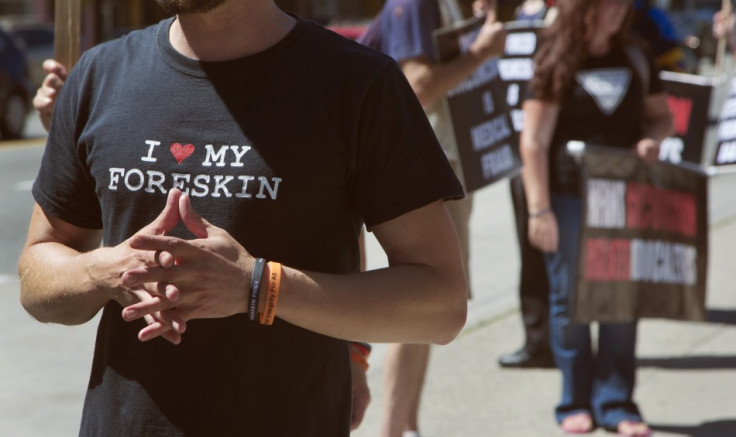Circumcision, Good Sex and the New Primitives [BLOG]

When I first wrote about circumcision four years ago, I described the opposition to this ancient ritual as "quixotic". Then, the issue appeared a Cinderella cause which, I cockily pointed out, was facing off against a quarter of the world's male population.
But in the interim there has been a quickening around the issue, and the advocates of the 'foreskin protection society' are on the rise, climaxing at the end of June when Germany was shaken by a court ruling that circumcision of minors was harmful, and a violation.
I am not sure what (the circumcised) Freud would have made of the West's growing obsession with the foreskin, but the intensity of the argument has been ratcheted up to unprecedented levels, with parents who want their sons circumcised being cast as abusive monsters.
The German ruling was framed in terms of children's rights - overriding parental or religious rights - as was a ruling in 2010 by the Royal Dutch Medical Association, which argued that circumcision of boys "conflicts with a child's right to autonomy and physical integrity". In Norway too, the children's rights ombudsman is now recommending Jews and Muslims conduct a symbolic ritual, instead of circumcision, and some MPs want a minimum age of 18.
Now, the debate pendulum will swing again. Against this background of scepticism in Europe, and among some in the US, the influential American Academy of Pediatrics is set to issue new guidelines on 27 August saying the medical case for circumcision has become stronger (call me paranoid but there'll be a troll out there who will count up the number of Jewish-sounding names on the Academy roll a declare a new "Doctors' Plot").
Its research will link male circumcision with a lower rate of HIV infection in heterosexual men. On the basis of the same work, the World Health Organization (WHO) is encouraging circumcisions as part of its overall HIV-reduction strategy in Africa.
The first evidence of circumcision comes from early Egyptian wall paintings that are more than 5,000 years old, but Judaism popularised the practice and for the Jewish male it remains de rigueur.
Advocates of the foreskin claim there are many men who have been traumatised by the rite, but in a lifetime of mixing with Jews I have not heard of a single regret about the "unnecessary surgery" committed on them as eight-day-old babies.
Conversations with friends and acquaintances have always revealed a deeply cherished connection to the Jewish appearance of their manhood. By contrast, the first glimpse of an adult foreskin when changing for games at secondary school remains a slightly disturbing memory.
The most disreputable argument of the 'foreskinners' is the claim that circumcision leaves the man sexually de-sensitised with his pleasure reduced. Poppycock!
It's a playground goad and I feel sorry for the partner of anyone who believes that good sex is found at the tip of the penis.
Arguably, the circumcision modification offers an opportunity for sexual longevity that off-sets any slight desensitisation, and brings greater pleasure for both people - while having a recognised sexual health benefit.
The rabbis believe the moment of circumcision arrives when the Jewish soul enters the male's body (females are considered morally superior, closer to perfection and thus Jewish by definition, hence, among the orthodox at least, a Jew's authenticity is provided by his/her mother's status).
That said, any mutterings of dissent within the Jewish community are from the womenfolk, the mothers.
Inflicting pain on their eight-day-old babies goes against all female instincts, and even among the religiously committed I have heard expressions of anger and fear at the ritual cutting (Brit Milah) carried out by a mohel (circumciser), wielding implements that would not be out of place in a medieval torture chamber. Despite the communal joy that surrounds the circumcision ceremony; as the joke goes: "A Brit is the one event you don't want to have front row seats for."
Twice I have had the 'honour' of pinioning the baby as he his circumcised and it involves a moment of revulsion and an after-glow of happiness and tribal bonding. It is a rite with depths that defy modernity and rationalism and propels the participants back to the time of the ancients.
Even for the most detached and uninterested Jews, who have long forgotten the covenant of Abraham and dismissed every other mitzvot ('command') as religious ramblings, the thought of a son with his foreskin still attached is unbearable.
It's a primitive and existential impulse that cannot be jettisoned even by hard-core atheism. Their circumcised member is a piece of external DNA - it says in no uncertain terms, this is who I am.
Julian Kossoff is managing editor of IB Times UK.
© Copyright IBTimes 2025. All rights reserved.






















